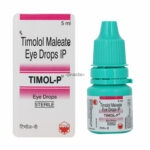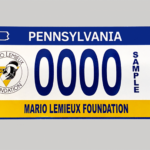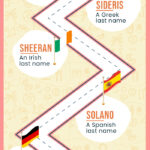Words That Start With Poly
1. Polygon
2. Polytechnic
3. Polygamy
4. Polygraph
5. Polychrome
6. Polynesia
7. Polyclinic
8. Polycarbonate
9. Polyhedron
10. Polytheism
11. Polynomial
12. Polyurethane
13. Polycotton
14. Polyphonic
15. Polymer
16. Polyandry
17. Polycystic
18. Polymorph
19. Polyvalent
20. Polyvinyl
21. Polymeric
22. Polyglot
23. Polysaccharide
24. Polysemous
25. Polygraphy
26. Polystyrene
27. Polyatomic
28. Polyethylene
29. Polyyne
30. Polypropylene
More About
Welcome to the fascinating world of words that start with “poly”! In the English language, the prefix “poly” holds a unique significance as it denotes an abundance or multitude of something. From ancient Greek origins, “poly” is derived from the word “polus,” meaning “many” or “much.” This prefix has found its way into our everyday vernacular, enriching our language with a plethora of captivating terms that reflect the diversity and complexity of our world.
The power of “poly” lies in its ability to encompass a variety of concepts across various disciplines, from biology and chemistry to politics and social sciences. Its universal appeal transcends boundaries, making it a perfect prefix to explore and understand a wide range of topics.
One of the most prominent areas in which the prefix “poly” plays a significant role is in the realm of polygamy and polyamory. These terms refer to the practice of having multiple partners or spouses simultaneously. Expanding on the traditional understanding of relationships and marriages, polygamy and polyamory allow individuals to create unique and consensual arrangements that honor their personal preferences and desires. Through exploring the experiences and dynamics of polygamy and polyamory, we can gain valuable insights into the complexities of human relationships and unravel the intricacies of love and companionship.
Moving beyond personal relationships, the prefix “poly” finds its place in scientific disciplines as well. For instance, in the realm of chemistry, the term “polymer” stands out as a fascinating concept. These macromolecules consist of repeating subunits, creating a chain-like structure. With their remarkable versatility and range of properties, polymers play an essential role in our daily lives. From the plastic materials we use to the synthetic fibers in our clothing, understanding the world of polymers opens a gateway to innovation and technological advancement.
Exploring the natural world, we encounter the mesmerizing realm of biodiversity. This term, rooted in the prefix “poly,” refers to the immense variety of plant and animal species that inhabit our planet. The study of biodiversity helps us comprehend the intricate web of life, emphasizing the importance of conservation and preservation. By delving into the vastness of biodiversity, we can appreciate the interconnectedness of all living organisms and gain a deeper understanding of the fragile balance that sustains our ecosystems.
The prefix “poly” also finds its way into the world of politics and social sciences. Political systems such as polyarchy and polycentrism embrace the notion of decentralized power and multiple centers of authority. Through exploring these concepts, we can understand the challenges and opportunities that arise in democratic societies and the need for diverse and inclusive perspectives in decision-making.
These are just a few examples of the captivating words that begin with “poly.” Each one has a story to tell, an idea to explore, and a concept to unravel. In the following articles, we will embark on a linguistic journey, diving deep into the meaning and significance of these fascinating words. Together, we will discover the richness and intricacy hidden within the prefix “poly,” unraveling the tapestry of our language and expanding our knowledge of the world.
So, sit back, relax, and prepare to be captivated by the wonders that await as we embark on this linguistic voyage into the enchanting world of words that start with “poly.”
FAQs:
1. QUESTION: What does the prefix “poly” in words mean?
ANSWER: The prefix “poly” in words generally means “many” or “multiple.”
2. QUESTION: What is a polygon?
ANSWER: A polygon is a closed geometric shape with straight sides, such as a triangle, square, or pentagon.
3. QUESTION: What is polygamy?
ANSWER: Polygamy refers to the practice of having multiple spouses at the same time.
4. QUESTION: What is a polymath?
ANSWER: A polymath is an individual who is knowledgeable and skilled in multiple fields or subjects.
5. QUESTION: Can you give examples of some common polysyllabic words?
ANSWER: Absolutely! Some examples of polysyllabic words include “polygraph,” “polyester,” “polytechnic,” “polyamide,” and “polyglot.”
6. QUESTION: How does a polygraph machine work?
ANSWER: A polygraph machine, also known as a lie detector, measures various physiological responses like blood pressure, heart rate, and perspiration to determine if someone is telling the truth or lying.
7. QUESTION: What is a polyclinic?
ANSWER: A polyclinic is a medical facility that offers a range of healthcare services provided by different specialists under one roof.
8. QUESTION: Are there any negative impacts of polypharmacy?
ANSWER: Yes, polypharmacy refers to the use of multiple medications simultaneously, and it can have certain negative effects such as increased risk of adverse drug interactions, higher costs, and potential medication non-compliance.
9. QUESTION: What is the significance of polymers?
ANSWER: Polymers are large molecules composed of repeating subunits and play a crucial role in various materials and industries, including plastics, textiles, and adhesives.
10. QUESTION: Can you provide examples of polygenic traits?
ANSWER: Certainly! Some examples of polygenic traits include height, skin color, intelligence, and susceptibility to certain diseases.




















